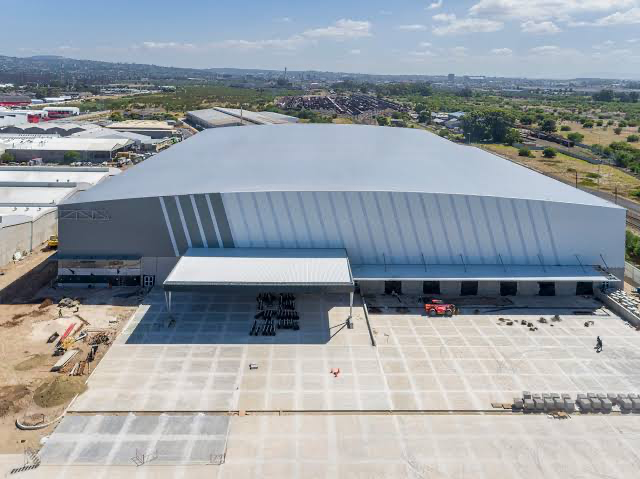358
CAPE TOWN (AP) — Equites Property Fund Limited has initiated a groundbreaking project aimed at revolutionizing energy consumption in Cape Town.
The company has repurposed its distribution center into a state-of-the-art power hub, leveraging renewable energy sources to supply electricity to its head office in Cape Town. This innovative initiative marks a significant step towards sustainability and energy efficiency in the region.
Equites’ distribution center, located in the Western Cape, now serves as a key node in the company’s energy distribution network. Through the installation of solar panels and other renewable energy infrastructure, the center has been transformed into a self-sustaining power generation facility.
By harnessing solar power, Equites aims to reduce its reliance on traditional energy sources and minimize its carbon footprint. The company’s commitment to sustainability aligns with global efforts to combat climate change and transition to renewable energy solutions.
The project represents a major investment in renewable energy infrastructure, with Equites leading the way in integrating sustainability into its operations. By utilizing clean energy technologies, the company seeks to set a precedent for other businesses in the region to follow suit.
Equites’ pioneering approach to energy management not only benefits the environment but also enhances operational efficiency and cost savings. By generating its own electricity on-site, the company can reduce its reliance on the municipal grid and mitigate the risk of power outages.
The transformation of the distribution center into a power hub underscores Equites’ dedication to innovation and sustainability. Through strategic investments in renewable energy, the company is driving positive change and contributing to the transition towards a greener future.
As Equites continues to expand its renewable energy initiatives, the company remains committed to making a meaningful impact on the environment and society. By embracing sustainable practices, Equites is leading the way towards a more resilient and environmentally friendly future.
Source: Engineering News
The company has repurposed its distribution center into a state-of-the-art power hub, leveraging renewable energy sources to supply electricity to its head office in Cape Town. This innovative initiative marks a significant step towards sustainability and energy efficiency in the region.
Equites’ distribution center, located in the Western Cape, now serves as a key node in the company’s energy distribution network. Through the installation of solar panels and other renewable energy infrastructure, the center has been transformed into a self-sustaining power generation facility.
By harnessing solar power, Equites aims to reduce its reliance on traditional energy sources and minimize its carbon footprint. The company’s commitment to sustainability aligns with global efforts to combat climate change and transition to renewable energy solutions.
The project represents a major investment in renewable energy infrastructure, with Equites leading the way in integrating sustainability into its operations. By utilizing clean energy technologies, the company seeks to set a precedent for other businesses in the region to follow suit.
Equites’ pioneering approach to energy management not only benefits the environment but also enhances operational efficiency and cost savings. By generating its own electricity on-site, the company can reduce its reliance on the municipal grid and mitigate the risk of power outages.
The transformation of the distribution center into a power hub underscores Equites’ dedication to innovation and sustainability. Through strategic investments in renewable energy, the company is driving positive change and contributing to the transition towards a greener future.
As Equites continues to expand its renewable energy initiatives, the company remains committed to making a meaningful impact on the environment and society. By embracing sustainable practices, Equites is leading the way towards a more resilient and environmentally friendly future.
Source: Engineering News



